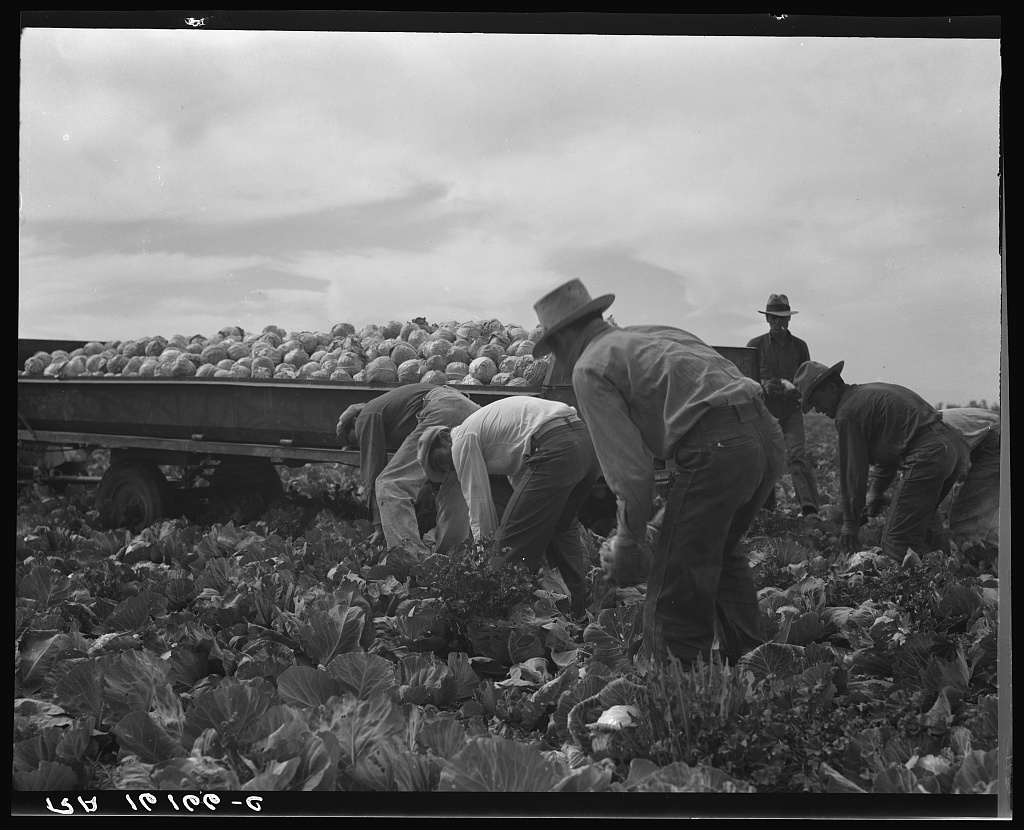In the 1930s, Elton Vessey, who founded Vessey & Co along with his wife, Maudie, developed an innovative transportation technique utilizing a flatbed truck for the harvesting of crops in the Imperial Valley.
Today, the Vessey & Co. website (www.vessey.com) devotes a paragraph to the innovation in its retelling of the company history. It notes that the “Vessey System” revolutionized lettuce harvesting and was utilized by growers throughout Arizona and California. In fact, the innovation was spun off into a separate company called the Rapid Harvest Company. The innovation is further memorialized in a February 1937 entry in the “Photo, Print, Drawing” section of the Library of Congress. That entry focuses on the use of the “new Vessey (flat truck) system” for the harvesting and hauling of cabbage and also notes that the innovation is used in carrots and lettuce.
It was no doubt the drive to increase the efficiency and output of his workers that led Elton Vessey to develop that system. That is the same motivator that drives his great grandson Jack as he looks for efficiencies in the same fields where the Vessey System first debuted.
Jack Vessey, who now leads the company and oversees its 10,000-plus acres in that same Imperial Valley, says it is the need for increased mechanization that informed his company’s decision to be an early sponsor of the Western Growers Center for Innovation & Technology.
Housed in Salinas, the Center acts as an incubator of ideas and a depository for start-up companies looking for a place to give those ideas a place to breathe and flourish. “Mechanization and automation is the key to our future viability,” Vessey said.
While helping to fund this program is a testament to the company’s long-standing commitment of service to Western Growers and the industry, Vessey pulls no punches. This is also a pursuit of survival. “We have to have help on the labor side,” he said. “We have to be able to farm more acres and have more production with fewer labor hours.”
He said it is an undisputed fact that sufficient labor to harvest the crops and make them ready for market is getting much more difficult to secure and is increasingly more expensive to the point that it is almost impossible to survive. Technology is the solution, he said.
He added that technological advances in other aspects of running an agricultural business are also very much needed including in the food safety arena and for many administrative tasks such as streamlining payroll accounting and making sure the firm is in compliance with a myriad of worker regulations. “It’s clear, we need new solutions.”
Currently, there are more than 50 companies in the Center working on a far-ranging list of ag issues including mechanization, computer science, water quality and supply, and crop protection.




